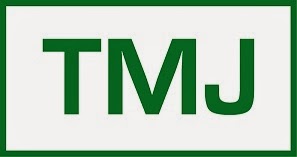Can you make "economics" a usually dull subject more exciting? Yes, you certainly can! The most constant phrases I kept on hearing in my head, while reading this book was simple wow, cool, how amazing, what a great angle, I had no idea. I was really impressed by a style of writing that I had never read before. I could not put the book down. I realized that I had only viewed economics with a very basic boring dry view. This book opened my eyes to seeing the bigger picture about economics.
The two totally "hands on" authors look at the "real but hidden economy" that real people use money for. They are not afraid of looking at where people really spend their hard earned cash, even in illegal ways. They make very innovative observations on what is really happening in the total economy everyday as a result. This is a view of economics that was never taught in school, and makes you sharp in follow up observations. You see the world differently without assumed barriers or fixed rules. You see economics as they really are, not how governments or academics present them to be.
Everybody knows about official economic numbers from the news, but this book brings more. This includes an insider view of many "guilty pleasure" numbers from many paid for items often hidden within the US economy. How much does a drug dealer really make a week? Why does he live with his Mom? Is his net income not high enough to move out? Getting the scoop on how much he really makes is really riveting. You just cannot find such info anywhere else. It is unique and very compelling. It takes a certain odd type of author to even want to know those details. However, it takes a seriously odd one, to go out and really find out. This is not library research.
Many topics just jump out at you needing a good read. How can you resist finding out how the Klu Klux Klan is like a group of real estate agents. How can any July 4th weekend be the best sales days for prostitutes in every major US city. How did being a criminal change widely in its income levels over the last few decades. I did not know how badly I wanted to know the answers to these questions. Until I learned the answers, and more importantly, how they were found. I just could not stop reading.
The Top 3 Takeaways from this book that impact any reader are:
2) Prostitution in many cities in the US has a real need for citizens needing time away from relatives on family visits. Supply and demand peak during these periods.
3) The real economy gives a real sense of economic activity. Government numbers are just one boring side to the numeric research. It is certainly not complete as a picture.
If you want to know about this "hidden angle" of the economy you already live in, this is for you. The attitudes of these authors is of curious misfit scientists and is well reflected all throughout the book. It is wonderful stuff. Perfect for a plane journey as it comes in great chunky chapters. Highly Recommended!
Please visit us for our Friday Feature Review where TMJ Partners will review books, movies, conferences and anything else with a financial theme. Follow us now for our free weekly updates, just click here. Thank you for reading and learning more about how money is made in finance!
For more Buy-Side and Sell-Side roles in Asia-Pacific, contact our TMJ Partners Japan & Asia Finance team.
Tokyo Tokyo








